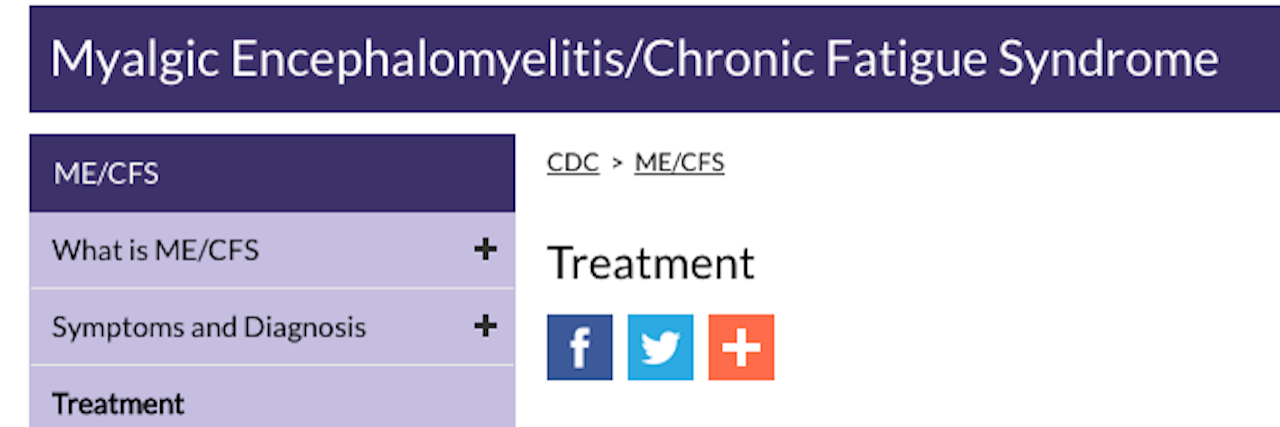The Centers for Disease Control (CDC) has quietly removed two controversial and highly criticized treatments for chronic fatigue syndrome/myalgic encephalomyelitis (CFS/ME) from its website.
In early July, mentions of graded exercise therapy (GET) and cognitive behavioral therapy (CBT) were removed from the “treatment” portion of the CDC’s CFS/ME page. The move was not widely announced; Undark reported on the changes at the end of July and it was brought to The Mighty’s attention via an op-ed published by Stat yesterday.
In a statement emailed to Undark, the CDC referred to their previous treatment recommendations as “confusing” and hoped the changes would provide “more clarity.” They also told Undark they planned to share the website updates once “companion pages for health professionals” had been updated.
We continue to believe that exercise can be useful for some ME/CFS patients, and also are trying to emphasize that people need to be careful not to overdo it and push themselves so far that it harms their health. We also state that talking to a therapist to help find strategies to cope with their illness may be helpful. We know from our past discussions with patients and their loved ones that there has been confusion about what we recommend related to exercise and therapy. We hope that the updated website provides more clarity.
CBT, a type of psychotherapy that focuses on changing patterns of thinking in order to change behaviors, and GET, which claims to improve CFS/ME symptoms by gradually increasing a patient’s physical activity, had been two of the guiding principles of CFS/ME treatment for years. In 2011, a study published in The Lancet, known as the PACE trial, claimed those two treatments gave patients a 60 percent chance of getting better and 22 percent chance of completely recovering, influencing treatment guidelines of organizations like the CDC.
However, people with CFS/ME criticized these treatments, maintaining that CFS/ME wasn’t a psychological disorder and that pushing themselves to exercise made their symptoms considerably worse. In 2015, the Institute of Medicine reported that even minimal activity increased symptoms like exhaustion, muscle pain and cognitive difficulties.
Last year, a re-analysis of the PACE trial found that the research was deeply flawed and that only around 10 percent of study participants had improved because of CBT or GET.
The CDC does not have the best track record when it comes to CFS/ME. In 1999, the CDC admitted it had diverted millions of dollars intended for CFS/ME research to other programs.
Currently, the CDC website lists treatments like avoiding push/crash cycles, using complementary therapies, stretching and movement therapies and good sleep strategies. It also notes, “patients should talk with their doctors about all potential therapies because many treatments that are promoted as cures for ME/CFS are unproven, often costly, and could be dangerous.”
Earlier this summer, research from Stanford University offered insight into the biological basis of CFS/ME. The study found a link between CFS/ME and markers of inflammation in the blood, which could pave the way for diagnostic blood tests as well as future treatments.

